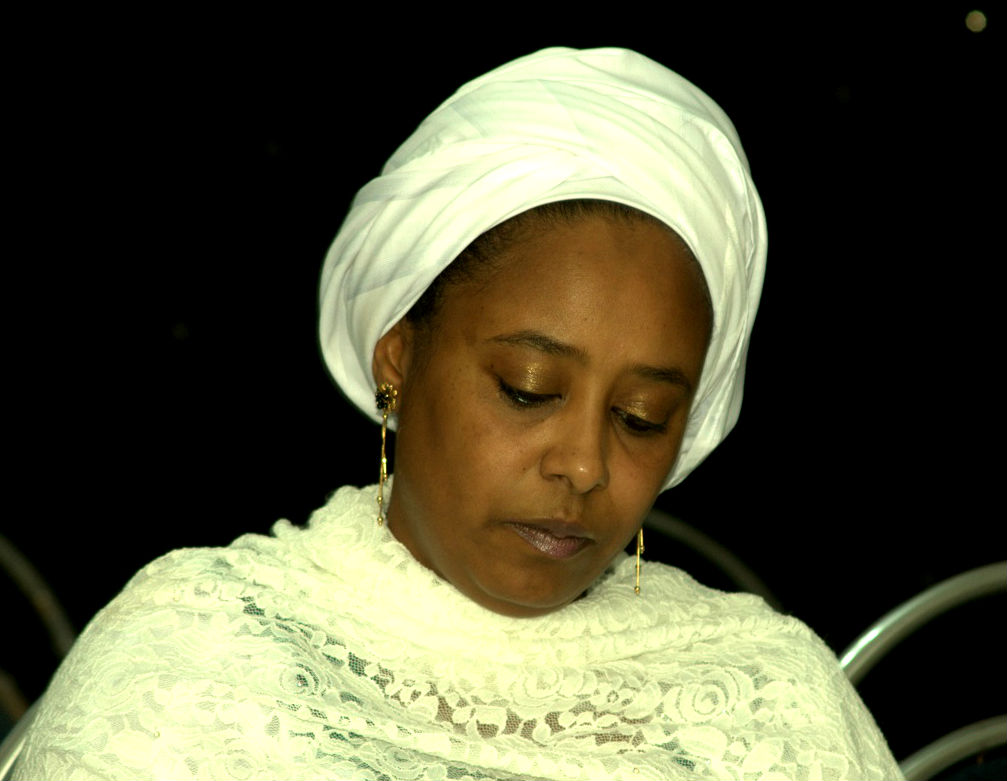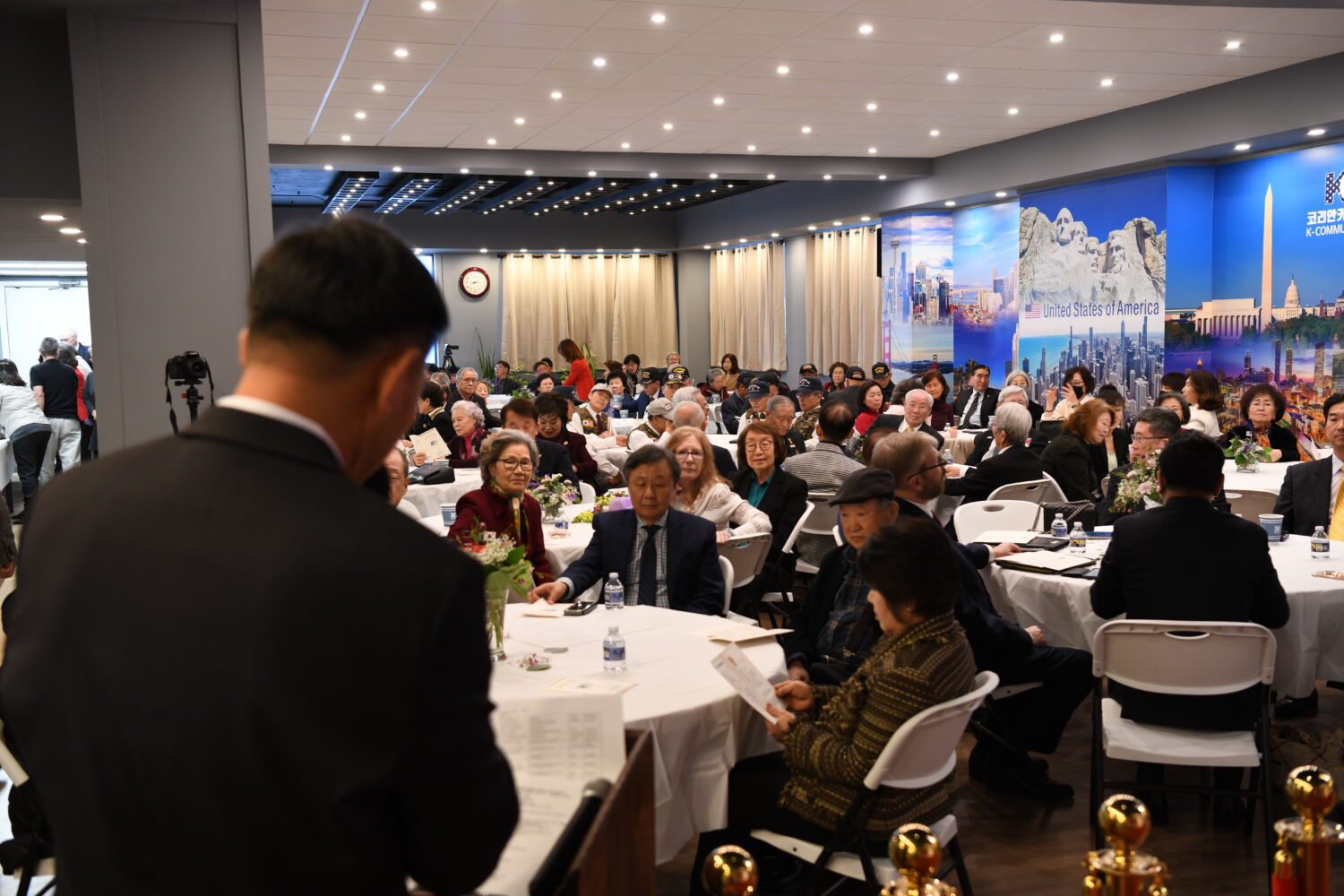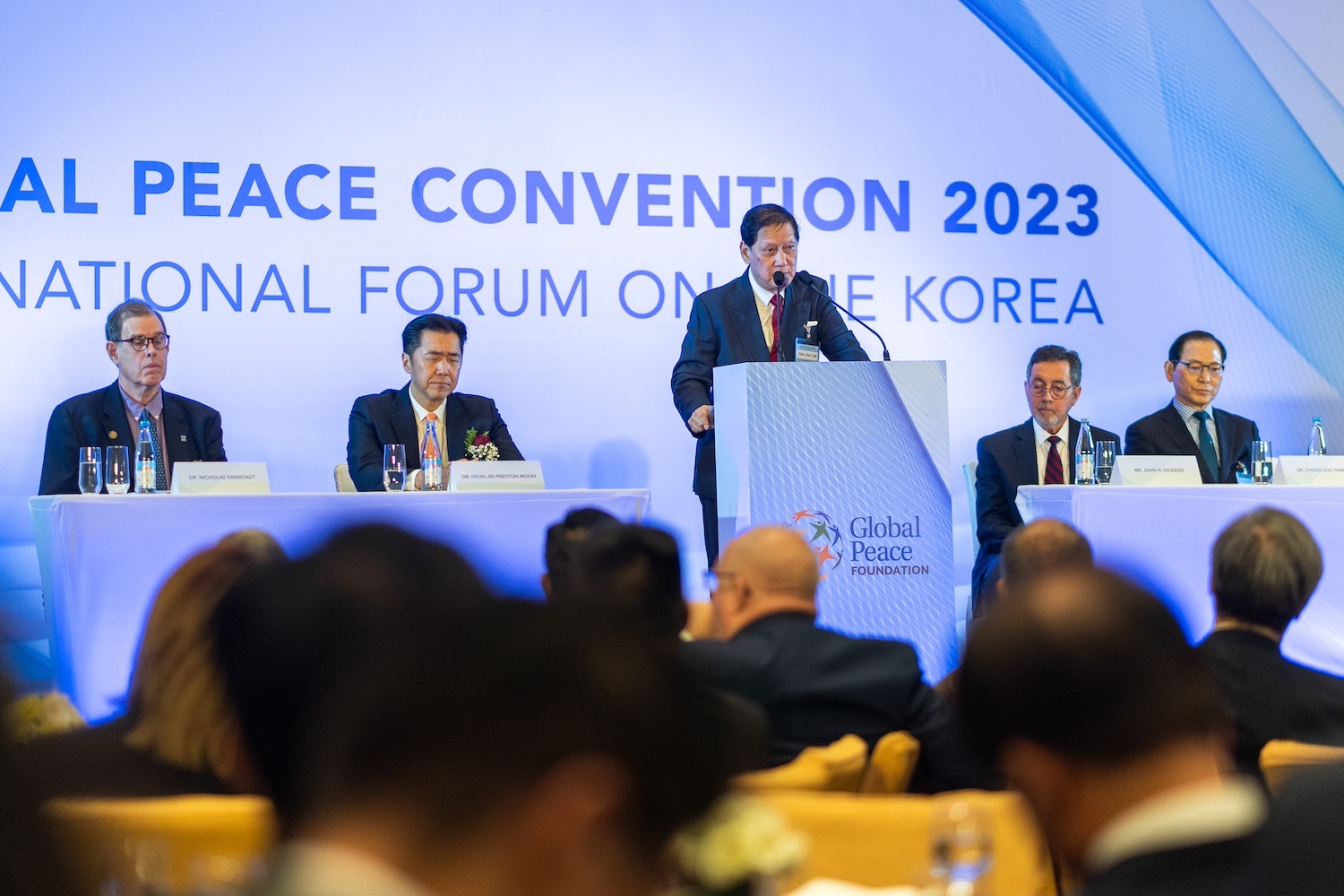“Partnership For Peace – Dignity for All: We Are One Family Under God”
Kaduna, Nigeria
September 21, 2015
PROTOCOL

Her Excellency on International Day of Peace in Kaduna.
1. It is indeed an honor and privilege to be invited as the guest speaker of this year’s United Nations International day of Peace Commemoration. I wish to thank the Global Peace Foundation (Nigeria) for inviting me and for all the successes the Foundation has recorded in its numerous interfaith initiatives these past years. Foundations, such as the Global Peace are key influencers in promoting peaceful co-existence and non-violence across the world. It is, therefore comforting and reassuring that you are commemorating the International Day of Peace in Kaduna today. I am pleased to be here to share some thoughts on this year’s theme titled, ‘Partnership for Peace – Dignity for All: We are One Family Under God’.
2. The International Day of Peace was first conceived during the 77th United Nations Plenary meeting on October 30, 1981. On that day Resolution 36/37 which reads in part… “The General Assembly recalling that the promotion of peace, both at an international and national level, is among the main purposes of the United Nations, in conformity with its charter declares that the 3rd Tuesday of September, the opening day of the regular sessions of the general assembly shall be officially proclaimed and observed as the International Day of Peace and Strengthening the ideals of peace both within and among nations and peoples” was passed. And all member States, organizations and indeed all human beings were called upon to cooperate with the UN to observe the day as an annual day of non-violence and cease-fire.
3. Distinguished participants, the theme of this year’s commemoration is “Partnership for Peace – Dignity for All: We are One Family under God”. This theme is apt particularly in the circumstance we find ourselves where ignorant people use the name of God to commit atrocities ranging from murder, rape, armed robbery and lots more! I called them ignorant because no knowledgeable person in the Christian or Islamic religion will claim that God sanctions crime.
Indeed both the Holy Quran and Bible are replete with sermons of peace, for example in Chapter 25 verse 63 (Suratul Furqan) of the Holy Quran reads: “And the servants of Allah (Most Gracious) are those who walks on the earth in humility, and when the ignorant address them they say Peace.”
Similarly, Prophet Muhammad (S.A.W.) Said: “He will not enter paradise whose neighbor is not secure from his wrongful conduct”- Sahih Muslim
In the Holy Bible, Romans14: 19 reads: “…. Let us therefore make every effort to do what leads to peace and mutual edification”
And in Corinthians 14:33 it is further stated “For God is not a God of disorder but Peace…”
It is therefore only an ignorant person that will use religion as a basis for unleashing violence and disorder in society.
4. Today, therefore, offers us another opportunity to reflect deeply on the consequences of violence and the lack of peace. The World Peace Day calls upon parties to conflict to also cease-fire and explore peaceful resolution to their conflicts. This year’s international day of peace is being commemorated when the world is witnessing increasing violence and humanitarian and refugee crisis. On this day, our hearts must go to the displaced people, including women, young boys and girls in the North East of Nigeria where thousands of lives and livelihoods are lost daily and the where about of more than 200 Chibok girls remain unknown. The war in Syria has also presented to the world a huge dilemma of the consequences of violence, putting young girls and boys out of school and creating a refugee situation in the Middle East. A moral burden is cast upon the world at the sight of a young child washed away at sea or the stories told by teenage Yazidi girls who escape from ISIS enclave, telling of sex crimes and dehumanization of fellow human beings. This violence, especially the violence promoted by groups who abuse religion is deeply entrenched in a murderous ideology that refuse to recognize the dignity of all human beings under God. Thus, the campaign motto, ‘We are one family under God’ is a strong narrative in addressing the roots of violence and lack of peace.
5. Are we really one family under God? Scriptures tell us we are. In the Qur’an for example Man is told that God created Mankind into different tribes and nations so that ye may know each other. We call the three major faiths Abrahamic, pointing to our monotheistic roots in Abraham (A.S). Again, Muslims are told in the Quran that they will find closest to them in faith are those who say, ‘we are Christians”. And the faith of a Muslim cannot be complete until he believes in all the prophets sent by God to Mankind, including Jesus (A.S). The Qur’an told of the promise made to Mary and of the immaculate birth and of Jesus speaking in the cradle. We share so much in our roots yet we have become so divided over the centuries. What is clear though is that Man, not God, is the architect of religious oriented violence.
6. The politicization and abuse of religion in the quest for economic and political power by a largely selfish and corrupt power elite has foisted upon our nation a divisive narrative and an identity crisis. Over the decades, elite failure to construct a cohesive national identity left room for conflict and disorientation, presenting us with dissonance between God and Government, a dissonance that most nations have since reconciled. Our experience with religious riots and indeed religiously motivated killings in the last three decades is a direct consequence of the lack of a clear national policy toward religion and how best we can mobilize it for the promotion of our national well being. Religion, cultures and ethnicities should serve as assets that make nations diverse and great, better able to provide for an enabling environment that ensures progress and human development. Here in Kaduna State we have experienced periods of inter-religious and inter ethnic crisis that left behind graves, lost hopes and diminished economic well being, creating an artificial segregation between our people.
7. Before the crisis of the late 80s, and 90s and the first decade of the new millennium, Kaduna city and towns were known for the most Nigerian cosmopolitan outlook. Our kids, irrespective of tribe and religion went to school together, played together and developed lifelong friendships extending into adulthood. The older generation still enjoys these friendships but in recent times we have found ourselves raising kids in segregated cities and schools, under very divisive narratives that only strengthen fear and suspicion. While we cannot return the tranquility of the past as rapidly as we may wish, there is no task so desirous and so relevant to peaceful coexistence as to try to reclaim the soul of Kaduna State. If Kaduna reclaims its peaceful and harmonious past, Nigeria, too will be just as well. That is why everyone must be involved, states and non-state actors, in playing specific roles in peace building and conflict resolution.
8. Faith groups must first reclaim religion from the hands of merchants. As I stated earlier, man is responsible for the abuse of religion, misinterpreting and misrepresenting God. Men among us have over the centuries perfected the commercialization of vicegerency, deceiving innocent people to commit acts that are contrary to God’s plan. The Clergy and the Ulama must take full responsibility in the governance of faith-based institutions such that sound knowledge and spirituality will flow hence into families and communities. Hate cannot be the signature with which we identify with religion, neither should religion be used to spread fear and death across our land.
9. Governments at all levels must strengthen our laws and enforce the fundamental freedoms. The freedom of religion, speech and association, freedom from fear and the protection of dignity and the liberty of all must be seen to be promoted and protected at all times. State actors cannot afford to conspire with religious merchants to cause conflict for narrow political gains. The benefit of doing this is short term and the long-term consequence has proved to be very devastating. State and FBOs should be partners, complementing each other in the service of the people and we have seen good examples in many projects where governments and faith leaders act in good faith under God to achieve immense success. The Polio eradication campaign is a case in point. Government is also well placed to strategically support and promote conversations between different races, tribes and religions.
10. The broader civil society actors also have unique roles to play. Through innovative thinking community base organizations can utilize conflict resolution techniques in addressing some of the conditions that lead to conflict. Community engagement is key. We must act in ways that our families become repository of love, faith, national values, peace and harmonious co-existence. As parents, teachers and elder citizens we must act thoughtfully and responsibly in all that we do. Nations grow out of the vision and moral strength of its citizens. When we act in these ways the change will permeate society and provide us with the resilience to resolve conflicts when they erupt.
11. We cannot deny that we suffer substantial trust deficit in our communities, between leaders and the led, between faith groups, tribal groups, and age groups. The most proactive means to fix this trust deficit is by ensuring that as a nation we are in constant conversation. We must continue to discuss, analyze and find solutions to the major and minor conflicts confronting us. That is why the Global Peace Foundation is a good example for building trust and initiating conversations between different races, tribes and religions. By undertaking a zonal interfaith retreat in the 3 senatorial zones of Kaduna State, having called a summit of 700 stakeholders across the state to converse on peace and organizing get-together for Muslim and Christian leaders during Christmas, I believe you are pioneering a creative process of promoting peace and unity in Kaduna State.
12. Therefore, as the world marks the International Peace Day this 21 September 2015 and the global community reaffirms its preference for peace and non-violence we should remember our fellow citizens in the North East. Men who have been dishonored, women snatched from their husbands and children who can no longer go to school because of the raging insurgency. We must reach out to the internally displaced and remind them that they are not alone in their pain. We must remember the victims of the Zaria bomb blasts and let the families know that they are not alone through the painful process of losing their loved ones. Terrorism is determined to frighten us we must not succumb. Through the effort of everyone, government and civil society, we must sustain effort at defeating terrorism and rebuilding the homes, schools and hospitals that have been destroyed. Now we know that terrorism knows no faith, no race, no religion, it kills everyone and destroys everything. Our resolve across faiths, race and ethnicities must be to unite under God to protect the dignity of mankind and ensure freedom of life, and freedom from fear.
13. Distinguished participants, our societies are burning, our children, brothers, sister, mothers and fathers are being killed and out all kinds of inhuman treatment are meted on them on daily basis due to intolerance and quest for vengeance. The root cause of our problems will certainly be found in our refusal to heed to the call for peace as preached in our holy books. When we judge people on the basis of their tribe, religion or color of their skins, we are only encouraging prejudice and such can only result in calamity. There is no Nation to my knowledge that has succeeded without peace, no society that thrived in conflict. The question, I ask is therefore is it worth it? Should we continue to suffer stagnation because of we refuse to let go our prejudice, because we refuse to understand each other’s way of life? We are children of Adam and Eve as such share common lineage despite our tribal or religious leanings. We indeed are servants of God created to serve Him in this world as His vicegerents (His ambassadors here on earth), we must therefore rise and say no to violence and embrace peace as enjoined by the Almighty God.
14. We should be ambassadors of peace in our homes, in our churches/mosques, in our communities and in our nation. We should join hands with our government and the United Nations in promoting the ideals of peaceful and harmonious co-existence. We should bring up our children in humility and tolerance we should not preach what we do not practice. My dear participants, let me end my speech with a story my mother told me as a child, it a story of a man who had five children. And on his deathbed he called them and asked that they bring 5 sticks to him, when they brought them he asked the oldest to tie them together. He then asked the older one to break the sticks but he could not and so all the others could not break them. He asked them to untie the sticks and each should take one and break it, this they were able to do easily. He said to them, my children you see how difficult it was for you to break the sticks when they were tied together ad how easily you broke each one of them alone? The lesson I want to teach us is that alone we cannot survive but together we cannot be broken.
15. I once again thank you for inviting me. God bless the Federal Republic of Nigeria, God bless Kaduna State and God bless you all.



